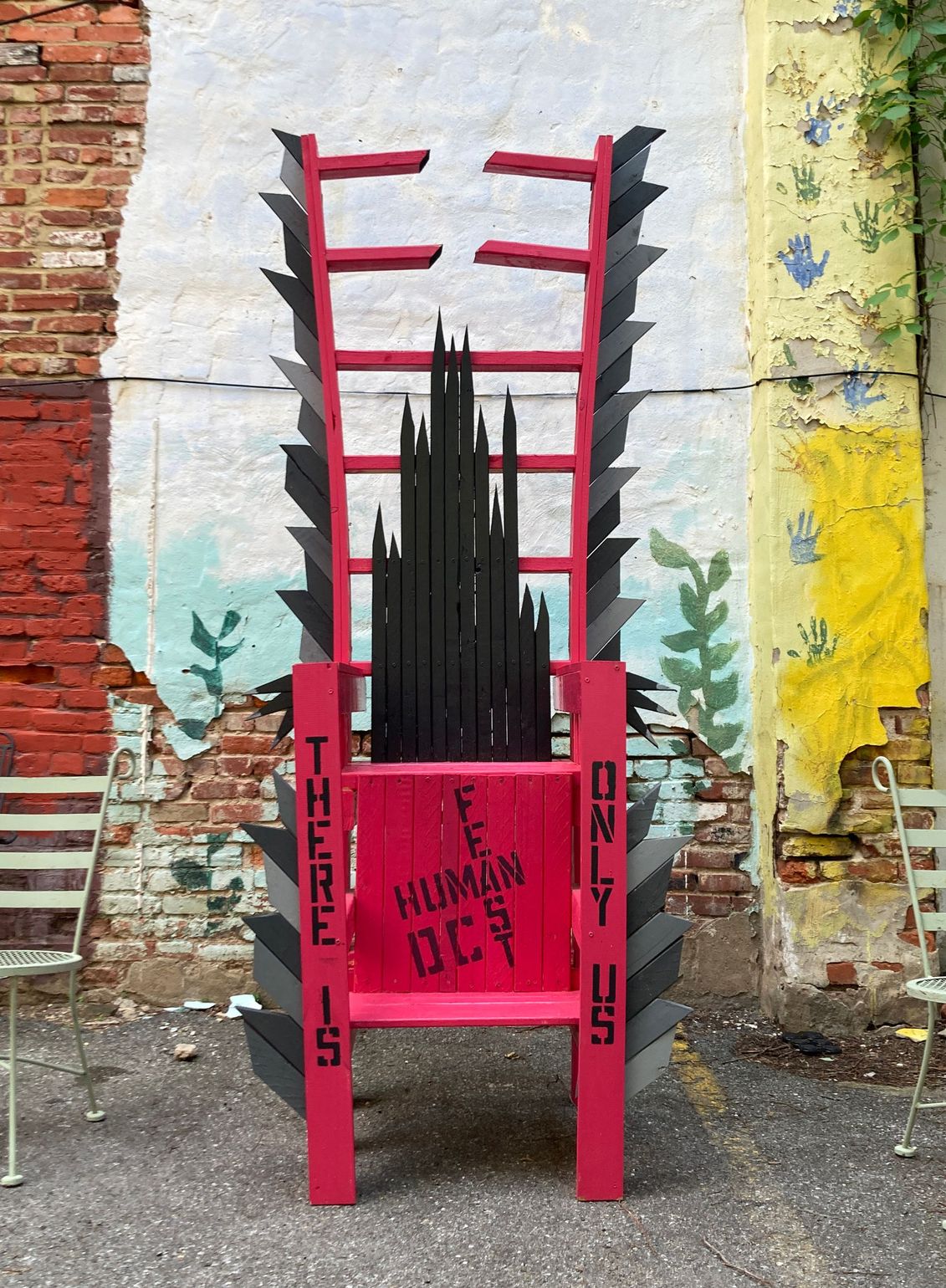AN ARGUMENT.
If you know a person who doesn’t know you, they are an apparition, thinner than a ghost or memory of anyone who knew you. It is not a haunting. It is a figment.
If you know a name that hangs on the lips of multitudes, who in their collective, zeitgeist, confected imagination must reaffirm this name, must intone it, must repeat it like a mantra, must keep talking about it to keep it alive and salient before it disintegrates into handfuls of dust, then that person, too, does not exist, and neither do the multitudes.
If you know the height, age, sidebar-fetishes, public secrets, gaffes and dubious acclaims of a person who never spent an evening on a bench with you, who missed last Sunday when in Kalorama you watched a murder of crows split around a sparrow and subsume it under the close, gray air, then, that’s it, you know the specs and details of a person who never was.
If you know of a thing happening on the same watch of a thousand people you do not know, if it is covered, rehashed, replayed, and disputed, if it is a coronation, massacre, or war, you might do your best to sanctify it with your notice, to keep it going, to exhibit in tiny specimen boxes or crypt displays of shared memories, in public mirth or guilt and allocated shame — you might let it stud your conversation with little nuggets and points of contact, with little pins and fasteners of shared fabrication — but, still, you have to wonder —
Revolutions that are televised, kings that are made, storybooks that are authored by people you don’t know —
Note this: To dream a show is to begin a death.
Let us explain.
If in a lucid dream you pick up a book and open it to find flights of pages that are blank, you know that you are driving the dream, you are authoring it; it is yours to play with. So fly, bring back the dead, talk to the ones you had fallen in love with, float above the orbital stage. Your memories, those little physical twindles of experiences in helices and catechisms of proteins and amino acids, those little packets you deconstruct and reconstruct, that you reshape and revise at every instance of remembering, of past loves, past encounters, of mountain-top nights under space blankets and invented constellations, of mornings listening to little globes of leaf-drops exploding across the vestibule, of occupying city parking lots between barrels of fire — if you dream these, if you reconstitute them in memories, they can happen today. They are yours, and thus they are prelude to what can happen again. But if you dream a show, a game, or some spectacular national event, the curtain falls. An empty screen. Credits roll of people you never knew, and can never see because they do not exist. If this happens repeatedly, long enough, you’ll never wake. Repeated across millions, the dream series of shows is the wake of culture. Nothing changes. Corruption is the equilibrium. Tune in long enough, priests are always on fire. If this is all you know and all you speak of, you contribute to the wind that passes through the crypt and sets the candles to flickering.
It is time to leave the show. I / you / we hold the Feast. From this throne and chairs, stools and benches, on this visible plot of land,
this square we’ve made by being here, its creosote, its painted yellow pebbles, its Permian moth wings of napkins, receipts, and parking tickets fanning against the wall, days and evenings become yawps and howls — WE HAVE TAKEN TO THE STREETS.
There are volumes of unrepeatable, sui generis, admittedly bizarre circumstances here.
Situations. Round the backslope of these curbs, sidewalks and park stairs, just beyond this platform, the world jets up material. Sit in these chairs, walk these benches and thrones to neighborhoods, across from galleries and down alleys, and set them up and hold court, and the city will cast, project, offer and belch up material that will sustain us and this Feast beyond every prelude. Here, there can be permanent novelty. This is the only thing we can call the present.
THIS POST, this only public transmission of spring, begins and ends in a paradox. It is self-aware. “You, the Feast,” it’s been said, “you are now media, too.” You say, “You post,
you broadcast.” “Your words and images, they pixelate, too.” We must admit the irony. Even this scream is epilogue. It comes out of the church-glow tomb.
Yesterday we installed our biggest throne and a few iron-wrought chairs on the tongue-porch of Malcolm X, right out of the aggregate lips of its fountains. I returned last night, and from the top of the park, above on the balcony where Joan of Arc waits for Sunday’s drum circles, I looked down. I saw people in the chairs.
They looked like Us.
This is a love letter.
There are no strangers.
There are no artists.
There is only Us.



